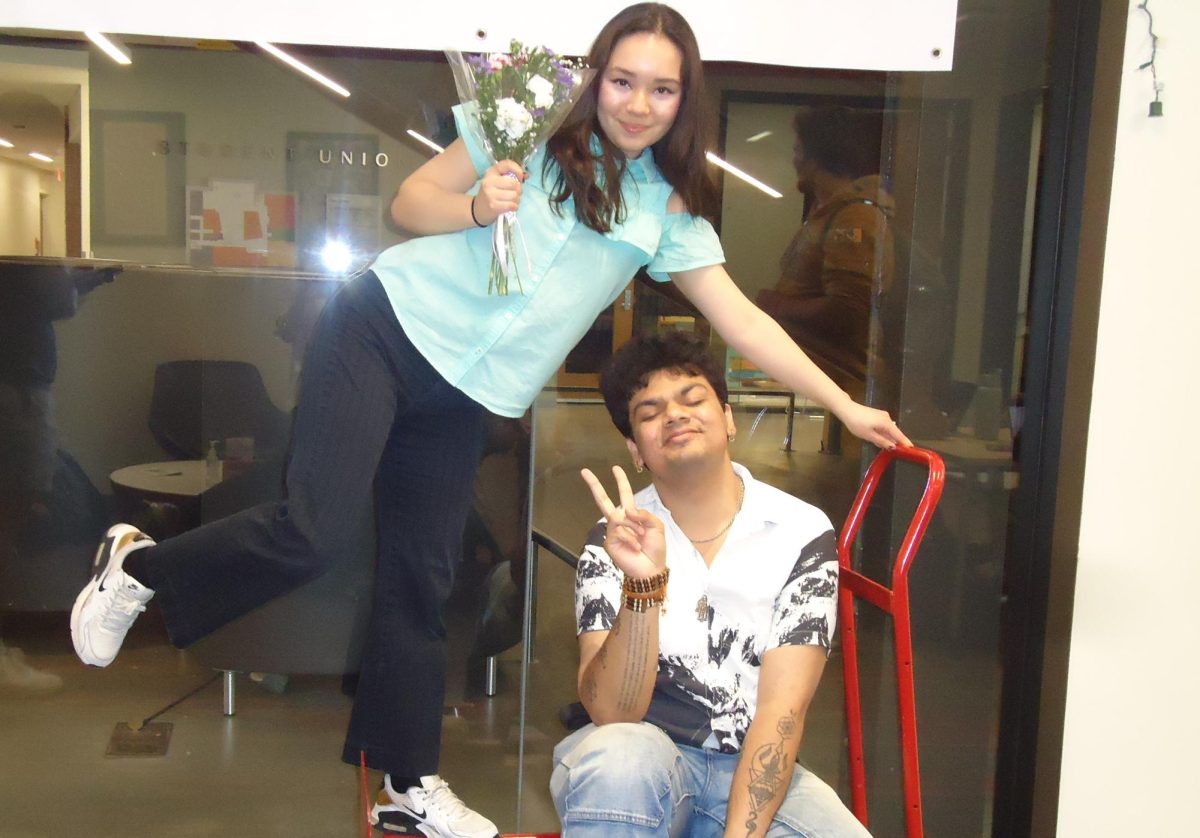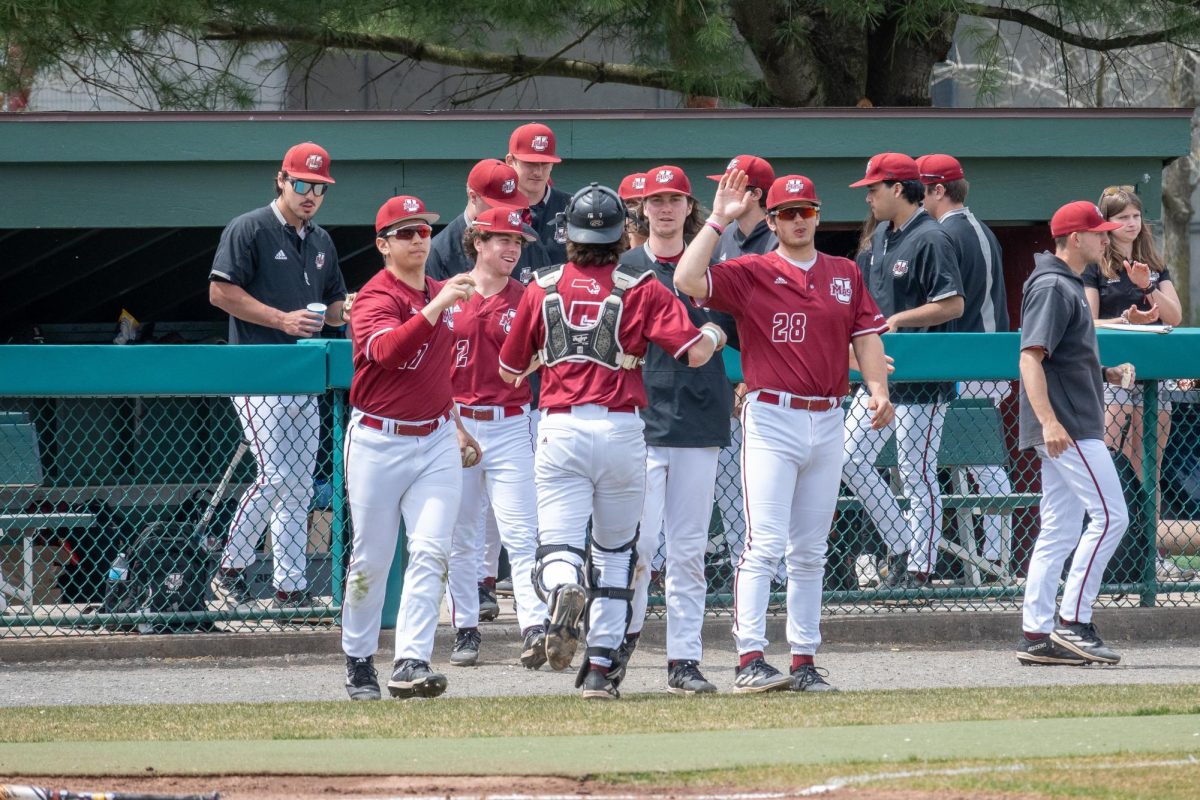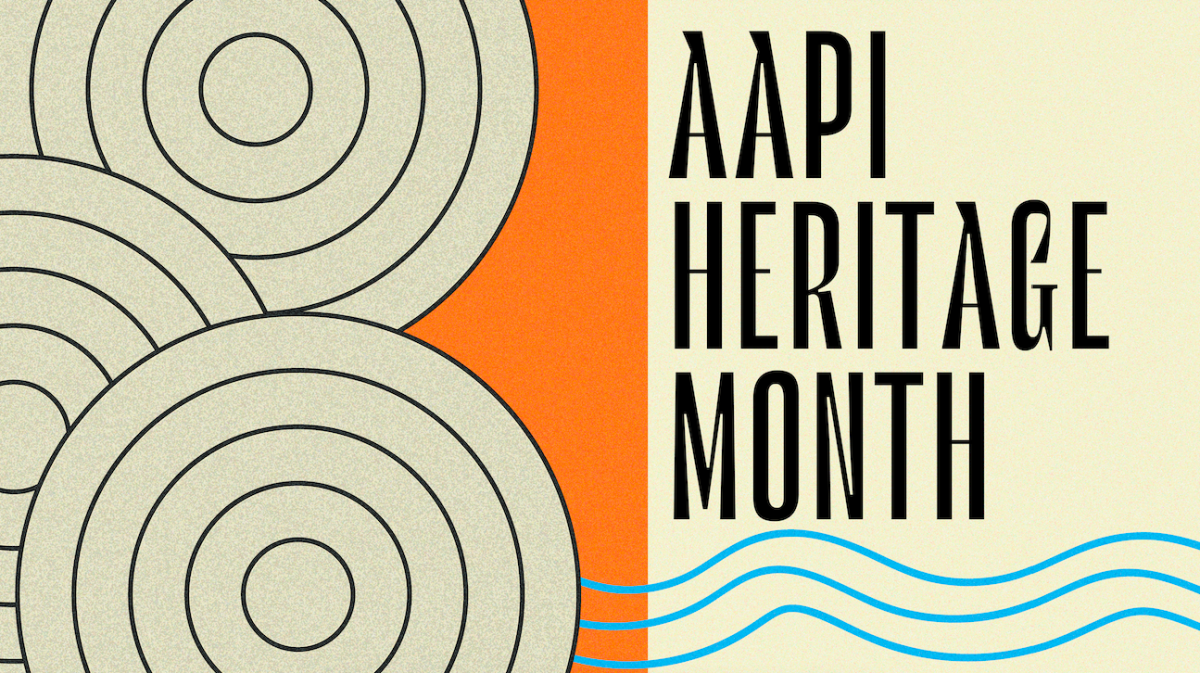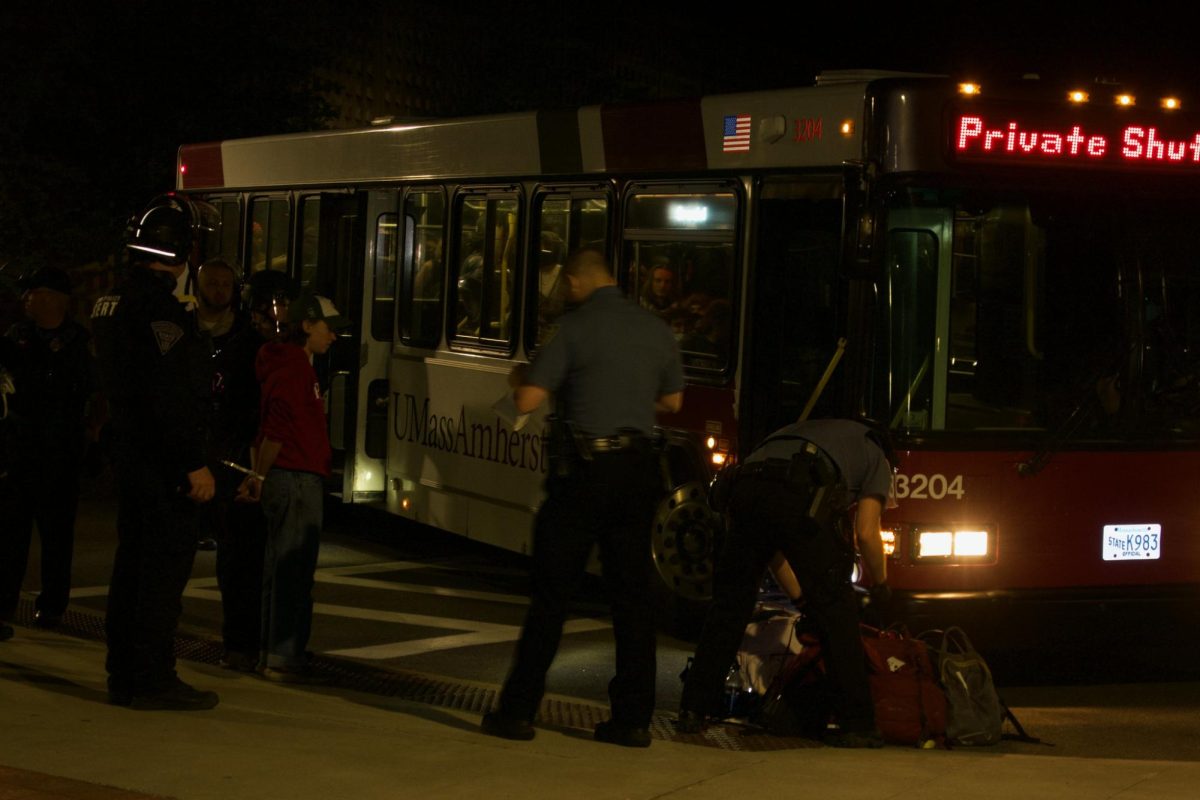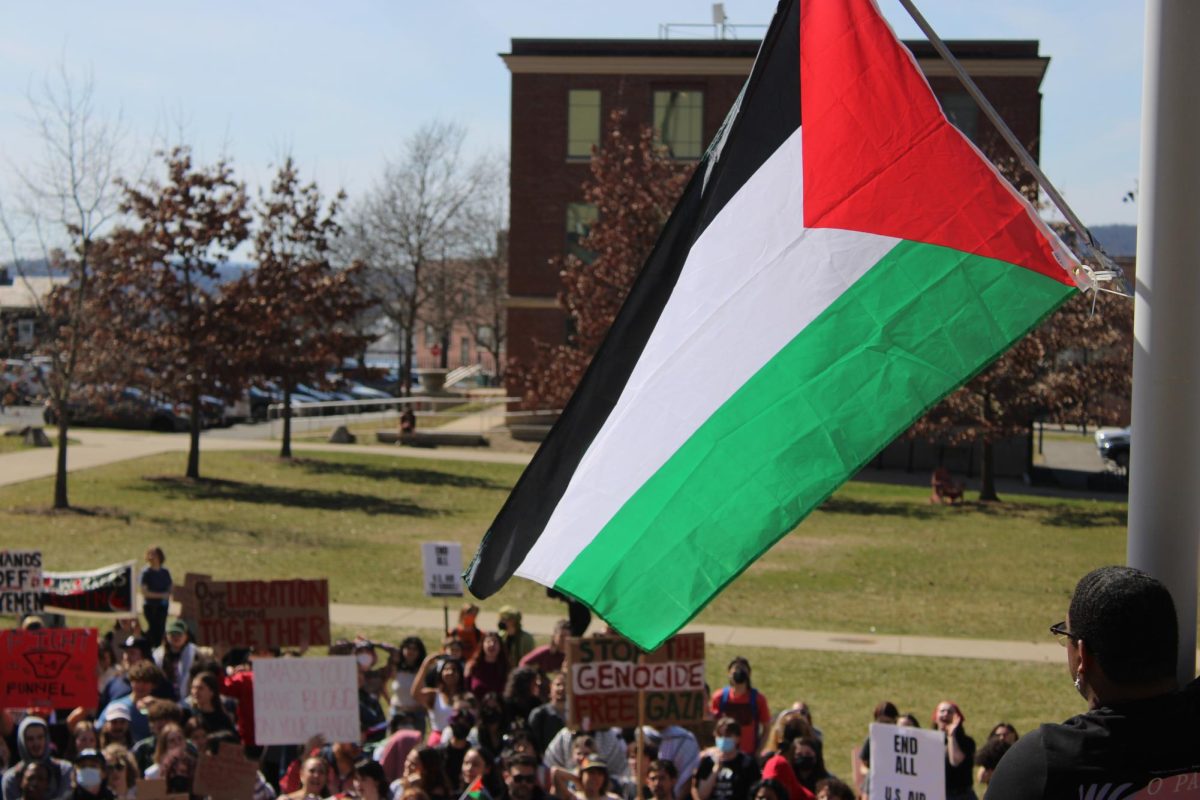Last year, I wrote a story about decolonization that focused mostly on the philosophical underpinnings of the concept. My argument was essentially that decolonization is not married to any political ideology, and is undertaken at different times, by different actors, for different reasons. In writing it, I never referenced any current events.
This being the case, I was still treated to a series of “callouts,” and even a screengrab of my entire Instagram profile on a page that has since been abandoned. Such were the tensions surrounding the Israel-Palestine conflict that my article, without ever mentioning it, was immediately interpreted as taking a side.
Around the time I wrote the piece, 57 University of Massachusetts students were arrested for protesting against the conflict by occupying the Whitmore Administration Building. Nationwide, protests were breaking out and tensions were high.
These tensions have not subsided.
Last week, a student speaker was barred from giving the commencement address at the University of Southern California because of security concerns owing to previous statements she made about the conflict. Protestors were arrested at Columbia University for their participation in an encampment, picketing against the war and their University’s involvement with weapons contractors that supply to Israel. Columbia has now moved to virtual instruction, citing safety concerns. At Yale, protestors were arrested for their role in a three-day encampment.
Individuals have not been spared by this rise in vitriol, with countless incidents of interpersonal hostility breaking out over the conflict. Our current atmosphere is dangerous and unsustainable – but how did we get here? And how do we get out of it?
The history of the Israel-Palestine conflict goes back, depending on who you talk to, either over 70 years, or over 2000. A full explanation of the history behind is far beyond what one college student opinion columnist can hope to achieve, so I’ll leave that to the rest of you. I’m more focused on the students who have risen up in protest, and the dynamics of their movement. How should we as a society think about and live with radical dissent from students?
A history of student protest
Student protests are part of a long history of political activism all over the world, but especially in the United States. Our political culture, and our unique respect for the value of freedom of speech– though some supposed free speech supporters are curiously less enamored with the concept now– has bred a fierce vein of student activism throughout U.S. history. The famous examples are burned into our collective memory, with images of Civil Rights marches and anti-war demonstrations coming to mind. The Greensboro sit-in, for example, where four Black college students fought for their right to be seated at a “whites-only” lunch counter, sparked a series of sit-ins all across the South, and in some sense helped to kickstart the Civil Rights movement. Similarly, in 1968, Columbia University called in nearly 1,000 police officers to arrest and disperse a nearly week-long student occupation of university buildings, in protest against the Vietnam War.
Some of our greatest political freedoms and achievements, including your right to yell “f*** the draft,” are owed to the brave sacrifices students made during an era of absolute political turmoil.
The wave of student activism during the 1950s and 60s was by far the most impactful and socially-oriented swathe of historical student protests we’ve seen, but the history goes even deeper. The tradition of student activism at U.S. universities goes as far back as the republic, with the first recorded Harvard student protest taking place in 1766, over the quality of butter served in the dining establishments.
Protest was, is and always will be an integral part of American universities. The causes and contexts change over time, but protest in some form is simply a part of collegiate life in the U.S.
Are the protests going too far?
The urgency of the current moment is obvious. The deaths of countless civilians are to be mourned, with more bodies piling up each day. The chief prosecutor of this war drags it on to avoid a prison sentence for corruption. The moment is certainly tense, and the stakes are high.
Protests like these are not unprecedented, but some who disagree with the message of the protests are choosing to behave as though they are. But this is wrong; the protesting students are not the second coming of the Brown shirts. They’re simply college students doing what college students do, one Washington Post column essentially argued.
That argument is exactly right. Student protest brings with it a level of zeal and enthusiasm that perhaps older generations don’t possess. Unfortunately, it also brings with it the trademark immaturity and ideological excess characteristic of students.
In the last few days, the leader of Columbia’s Dissenters chapter was found to have called for violence against students, saying “Zionists, they shouldn’t live in this world,” and “Be grateful that I’m not just going out and murdering Zionists.” This, of course, led to a tremendous amount of backlash online, and eventually led to the student being barred from campus. Most recently, social media has been abuzz with clips of protestors at Columbia yelling “Go back to Poland.” At the same time, accusations of general anti-Semitism on the part of protestors are rampant, with countless instances both at UMass and other campuses seeming to back up the claims.
To be sure, this knock on the protestors is overstated sometimes. The idea that all anti-Zionism is anti-Semitism is a nonsensical cudgel used to shut down criticism of the state of Israel.
But the idea that anti-Zionism can never be anti-Semitism is equally ridiculous. There is a genuine problem of anti-Semitism amongst some participants of the current movement. The leader of the protesting student organization should not be advocating for killing students based on political allegiances. Protestors at Columbia should not be yelling “Never forget the 7th of October…The 7th of October is about to be every f***ing day for you. You ready?” at Jewish students passing by. According to the Anti-Defamation League (ADL), anti-Semitic incidents were up 140 percent by the end of 2023. (And if your response to this is to call the ADL a “Zionist” organization, you’re proving my point.)
Some members of the movement have worked themselves into a furor resembling the very blood and soil nationalism they seek to abolish, and this needs to be called out. Continuously yelling “no bad protestors” is all well and good to build a movement, but one must take a good long look at what exactly it is they are building.
The problem isn’t just anti-Semitism; there seems to be a kind of collective suspension of disbelief occurring within left-wing circles. Take the Starbucks boycott – an organization known for being anti-union and mistreating its workers was suddenly transformed into the target of an anti-Zionist boycotting effort. And for what? Starbucks isn’t even that popular in Israel. It isn’t on the BDS list; it has absolutely no presence in or relevance to this conflict. The boycott is baffling, until you consider the fact that a lot of political activists have three things: a dislike for Starbucks as a corporation, a political movement that seems to entirely consume them and an undergraduate’s desire for simplicity in their work.
If Starbucks can somehow be made to fit within a broader narrative, so much the better for the student who loathes the prospect of multiple assignments.
And yet, for all the problems that do plague the current protests and all the excesses that have taken place, I would still argue they are largely in the right.
Extreme protests are par for the course
It’s easy to forget because of the white-washing of history that so often takes place after major social change, but the 1960s and the Civil Rights movement weren’t a Kumbaya moment with one peaceful march after another. They seem that way because we now have widespread agreement with the message of those protests, which colors our judgment, much like the disagreement with current protests colors judgment of them.
The Civil Rights movement and its leaders were highly disliked in the 1960s. You wouldn’t know it from our modern history education, but the movement was not purely a moment for peaceful protest and the race-neutral liberalism of the kind our generation grew up in. There were plenty of protests that turned violent, and plenty of racial ideologies at play that would have most modern liberals running away.
In getting to where we’re at now with race in America, all of it was necessary. While political extremism is undesirable, it is simply a reality of most successful social movements that there is an inevitable spillover of peaceful protests into sometimes excessive, disruptive events. Every national independence movement or freedom struggle has been characterized by political resistance of both kinds: violent and non-violent. Truly transformative political protest seems always to have a spillover. Without some people going too far, we may never go far enough.
For student protests specifically, the enthusiasm and lack of inhibition of the youth combine to produce the situation we have on our hands today. This doesn’t excuse the excesses by the protestors, but it should color our perception of the movement. This isn’t an unprecedented abandonment of norms, it’s instead an almost textbook piece of student activism, somewhat given as it is to overreach and immaturity.
That tendency to overreach is often lazily attributed to student protestors being largely from white, well-off families, and to put it kindly, unfamiliar with actions having consequences. In fact, the New York Post even ran a story talking about how many of the protestors at Columbia came from extraordinarily wealthy and influential families. This trend isn’t limited to Columbia, but instead seems to historically hold true at universities across the country.
There is certainly something to be said about performative and insincere activism by the children of wealth, and the fact that meaningful political issues are often reduced to easily “Instagrammable” signals of social status by such people. But I think a better question to ask when faced with this argument in the current moment is simply, “So what?”
Do we not want the children of rich and influential families to be concerned with political issues? This isn’t a problem at all. Casting aspersions at their sincerity too seems quite unfounded; posting on social media is one thing, but organizing encampments and getting arrested for one’s beliefs is not exactly the domain of lazy pretenders.
In fact, there’s even an affirmative case to be made in favor of protests by those with privilege. Doesn’t the Palestinian international student have slightly more to lose by protesting and being arrested than the art history major whose father donated a building? If those with privilege man the front lines in this struggle, and absorb blows that those they fight for wouldn’t be able to, is that not desirable – in fact, is that not exactly the culture we seek to promote?
Are we free to speak?
Speaking of arrests, we also need to address the freedom of speech aspects of the protests. UT Austin students were arrested for doing nothing but engaging in constitutionally protected free speech. While some of the protests are crossing over into unprotected speech, a great deal of them are protected, and those opposing the protests don’t seem the least bit interested in parsing the differences. When the governor of Texas sends in state troopers to quash protests, that should concern all of us. It strikes at the heart of our uniquely American freedoms.
This is happening purely because the message of the protests is unpopular. Once again, we see a point where the conflict is relevant. There’s only so much I can write about the protests without actually bringing up the conflict. We need to talk about it, and yet it is precisely what we’re least able to discuss; legally and culturally.
Even writing this, I’m hesitant to do so. There’s a pervasive atmosphere of fear surrounding the subject. Both personal and professional consequences seem to swiftly follow any opinion on the conflict. Entities like the Canary Mission exist for the sole purpose of scaring away critical opinion, as one of our own columnists detailed last semester.
The fear is then understandable, of course, but this situation is not sustainable. We need an off-ramp, and we need one fast.
What now?
Last November, a close friend of mine at Yale wrote a piece calling for empathy and constructive dialogue after the campus environment turned exceptionally hostile for both Jewish and Muslim students. I think he has it exactly right.
Empathy is absent from our discourse – empathy for those who have direct connections to the conflict. As someone without any relation to either Israel or Palestine, I am unable to fully understand the emotional turmoil that Jewish and Muslim students are in.
But I have a friend whose family was in Israel on Oct. 7, and I have a friend who grew up in Palestine. These friendships have shown me that no matter how much we may study or analyze an issue, there’s some knowledge that simply remains accessible only to those directly involved. I’ve had some difficult conversations with people on this issue, and what has surprised me most has been their willingness to engage, and even meet me halfway, if only I extend a hand and do the same.
I know that many of you reading this have, in some way, developed relationships with people in the UMass or broader community who have direct connections to both sides of the conflict. I also know that this is a community, and all of us, no matter what our disagreements are, are going to have to find a way to live together.
So, use those relationships. Extend a hand to those friends going through tremendous grief and confusion, and do so with a willingness to hear them out, and to show empathy toward their position, regardless of what your own may be.
The burden to do this, of course, should not be on those who are hurting, and affected by the conflict. It falls on those who have no direct connection to help start conversations and mend the social fabric enough to where the community can openly converse.
None of this is easy, but all of it is necessary. It requires putting aside your own beliefs for a moment, and forgetting about who is correct about the issue at hand. And here we’ve struck the core of the problem.
We are unable to suspend our opinions for the sake of our community.
The protests are perceived as unprecedented and radical extremism because their message is one that people disagree with, yet similar protests for causes that we generally agree with are viewed as positive. The free speech rights of protestors are trampled on because our leaders refuse to put aside their personal opinions. Our communities cannot converse because we too refuse to put aside our personal opinions.
Both as individuals and as a society, we are desperately in need of empathetic conversations, and the only way to do that is to momentarily suspend our beliefs and engage. Engage with those with those we disagree with, for the greater good. This is the only path forward; every other path leads us closer to hostility and further from peace, which I suppose is only a problem if you wish to live in a community alongside those you disagree with.
For some particularly involved activists, the answer to that question is a resounding “no.” In which case, there is absolutely nothing wrong with what the leader of Columbia’s Students for Justice in Palestine chapter said, and therefore should have been no apology and denouncement whatsoever. The fact that there was, I think, is all the evidence we need of how unserious these particular kinds of activists are.
As for the rest of us, I hope our role is clear. Only empathetic conversations can help the process of healing. And even though that is merely a start, I think it is a worthy goal to achieve.
Manas Pandit can be reached at [email protected].







